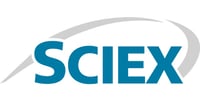WEBINAR
Challenges and Opportunities to Quantify Post-translational Modifications using Novel Proteomic Workflows and Approaches
Talk Now Available On-Demand

We have been using fast scanning TripleTOF systems to analyze a variety of post-translational modifications (PTMs) using both data-independent acquisitions (DIA) and more recently multiple reaction monitoring-high resolution (MRM-HR) to identify, characterize and quantify PTM-containing peptides in a high-throughput format.
Brought to you by

Watch Now
Webinar Summary
We have been using fast scanning TripleTOF systems to analyze a variety of post-translational modifications (PTMs) using both data-independent acquisitions (DIA) and more recently multiple reaction monitoring-high resolution (MRM-HR) to identify, characterize and quantify PTM-containing peptides in a high-throughput format. While rich information has been obtained using traditional CID fragmentation approaches, many of the modifications we study are highly labile and difficult to characterize.
We evaluated a new ion fragmentation approach for improved PTM characterization and more detailed site localization with the SCIEX ZenoTOF 7600 mass spectrometer. Using examples of key modifications found in our sirtuin 5 mouse models, we will demonstrate the impact of this new fragmentation approach on assessing the PTM profile during kidney injury, and potential pathways to protect from kidney injury via elevated succinylation levels that could open therapeutic avenues.
We evaluated a new ion fragmentation approach for improved PTM characterization and more detailed site localization with the SCIEX ZenoTOF 7600 mass spectrometer. Using examples of key modifications found in our sirtuin 5 mouse models, we will demonstrate the impact of this new fragmentation approach on assessing the PTM profile during kidney injury, and potential pathways to protect from kidney injury via elevated succinylation levels that could open therapeutic avenues.
Key points of discussion:
- Evaluation of a new ion fragmentation approach for its impact on improved PTM characterization and more detailed site localization.
- Demonstration of the impact of this new fragmentation approach on assessing the PTM profile during kidney injury, and potential pathways to protect from kidney injury via elevated succinylation levels that could open therapeutic avenues.
Speaker Information:

Prof. Birgit Schilling, PhD
Associate Professor, Director of the Mass Spectrometry Technology Center
Buck Institute
Associate Professor, Director of the Mass Spectrometry Technology Center
Buck Institute
